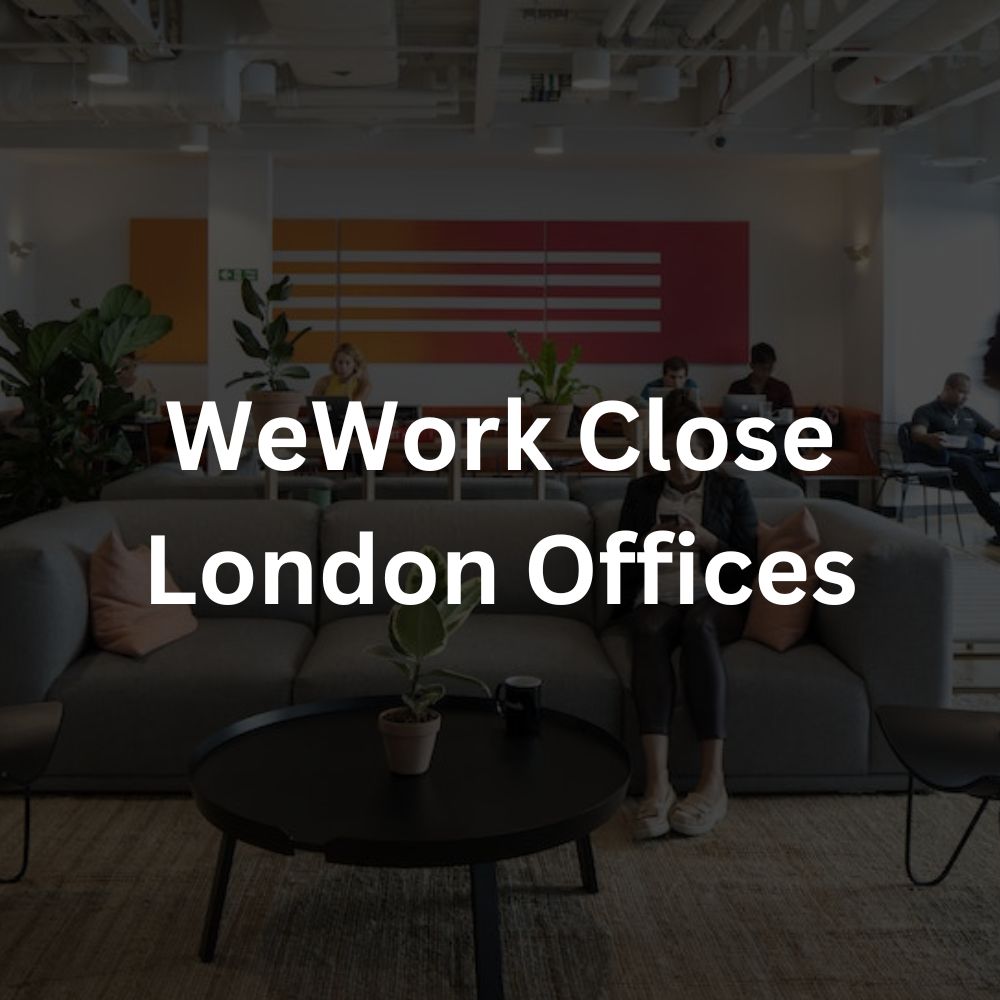Wework to Close London Offices

The company now lists 35 sites in London on its website, down from 50, according to news site Bisnow. Closing over ten locations due to a nasty bout of financial woes.
But don't you wonder what's next for WeWork and how this move might shake up the office space scene in London? Will WeWork go bankrupt in 2024?
Financial Challenges and Office Reductions
Despite facing a tough financial situation, WeWork has been cutting down costs by closing multiple London offices, including Finsbury Pavement, dropping the total number of workspaces from 50 to 30. This isn't some small move, mate. They're taking cost-cutting measures seriously.
Those office closures? They're not just about saving a little money. They're facing some real operational challenges. Rent is costly, especially in London. And when you've got more space than clients to fill them, something has got to give.
But it isn't all doom and gloom. They're working on some financial restructuring. That's a fancy way of saying they're getting their finances in order and cleaning up the mess. They've got a plan to turn things around.
It is not gonna be easy, but they're taking steps to fix what's broken. Cutting costs, closing offices, and restructuring their finances, all hoping to get back on track.
Industry Response and Customer Impact
Now, let's see how the industry's reacting and what this means for you, the customer. Industry reactions to WeWork's office closures have been mixed. Some insiders see a company in crisis, and others see a firm making hard but necessary choices. Yet, amidst the financial implications, there's a sense of resilience.
With offices closing, you've been faced with change. Some of you have been offered relocations, which can be a hassle, but it's also a sign that WeWork's trying to keep your satisfaction in mind.
Yet, the closures have financial implications that can't be ignored. WeWork's in debt, and that's a problem. But remember, they're also renegotiating leases and restructuring, all to keep the ship afloat.
In the end, what matters most is your experience and satisfaction. Despite the closures and financial mess, many of you still find WeWork's spaces vibrant and welcoming. So here's the silver lining - despite the storm, WeWork's still got its charm.
Negotiations and Future Plans
WeWork's got its hands full with negotiations and future plans. They're knee-deep in lease renegotiations and landlord discussions. The goal? Close unfit locations and focus on those that make sense, given the market demand and their current financial state.
Debt financing and repurchase negotiations are also on the table. Adam Neumann, is trying to buy back the company or arrange some debt financing. It's all part of a financial reorganisation plan to get WeWork back on track.
Now, you might be wondering about office relocations. WeWork's working on it. They're offering customers the chance to move to other WeWork locations. The focus is on flexible workspaces, so you might not be tied to one location.
In all this mess, WeWork's still pushing forward. They're taking the financial reorganisation bull by the horns and trying to adapt to the market demand. It's a tough road, but they're not throwing in the towel yet. They're making plans and working towards a more stable future.
London Presence and WeWork's Strategy
As we move on, let's take a look at how all these changes are shaping WeWork's presence in London and the strategy they're using to stay afloat. London expansion isn't easy, especially with the competition. WeWork is trying to cut back, closing down offices, and focusing on operational efficiency.
They're not just packing up and leaving. No, they're forming strategic partnerships, negotiating with landlords, and looking at where they can save money. They're ditching underperforming sites, tightening their belt, and focusing on what works best. The goal? To balance their books, address their debts, and come out stronger.
But it's not all cutbacks and closures. WeWork's still got a presence in London, and they're working on strengthening it. They're looking at the London market, seeing where there's demand, and trying to meet it.
Member Experience and Market Trends
Despite all the financial shake-ups, you'd be surprised that WeWork members still find their office spaces buzzing with activity and energy. Despite closures, the remaining spots have become busier workspaces. You see, it's the changing dynamics of the work world.
These evolving preferences are reshaping the industry. It's not just about having a desk anymore. It's about community, networking, and adaptability. WeWork still seems to deliver that, even in fewer locations.
Sure, the industry shifts have been hard. WeWork's had to close doors and rethink their strategy. But that hasn't stopped them from focusing on what's important - the member experience. You're still getting your money's worth. You're still part of a vibrant, dynamic space. It's different, but it's not all bad.
